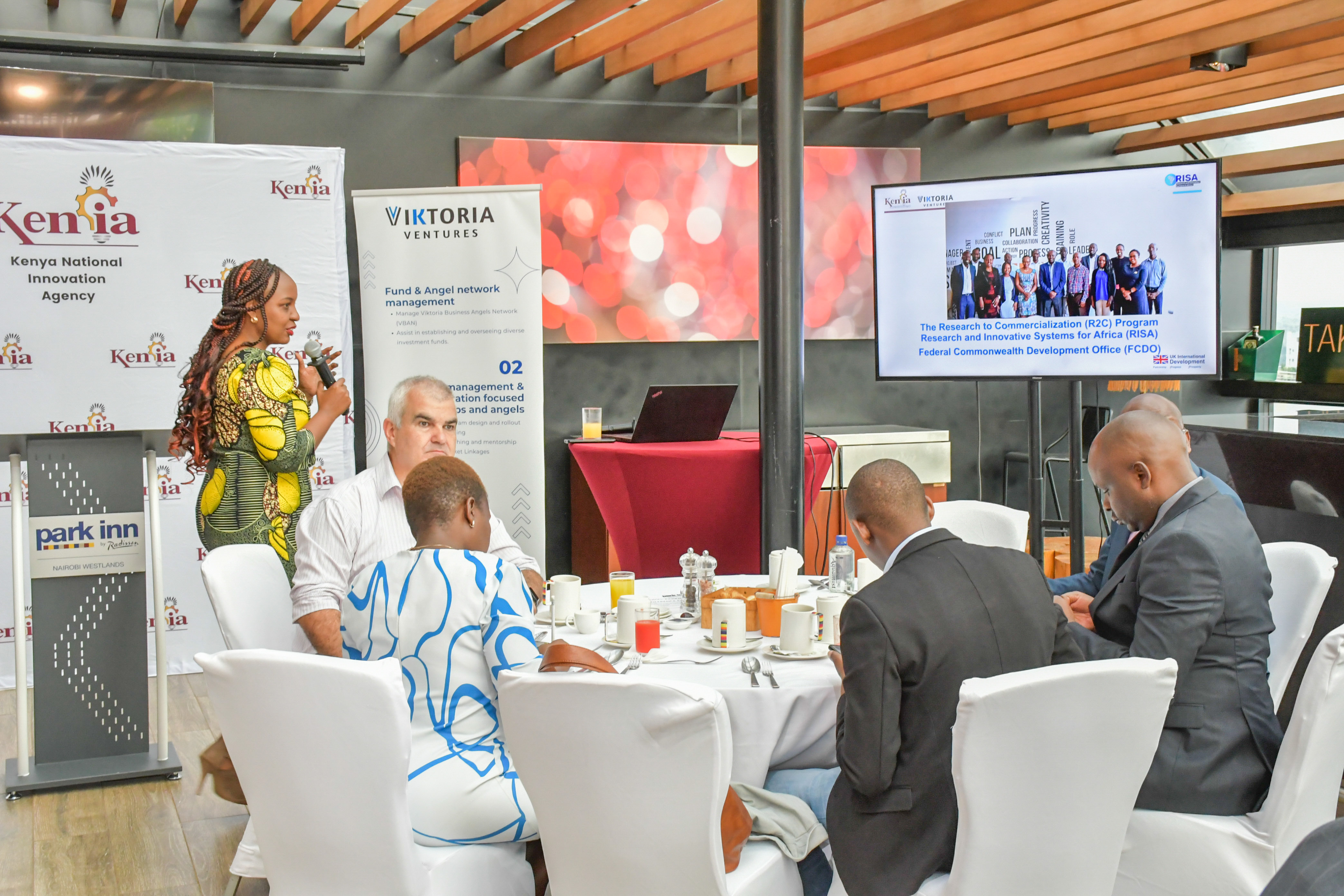
On 5th March 2024, The Kenya National Innovation Agency launched phase 2 of the R2C program, marking a pivotal step in the country's innovation landscape.
The inaugural phase of the R2C program, designed to help innovators, academics, and entrepreneurs bridge the gap between innovative research ideas and commercial success, provided training to over 500 participants across 28 institutions through a cascaded training module. With 30 innovators undergoing an intensive 11-week training, four of whom have already secured an impressive funding of 48 million shillings.
KeNIA CEO, Dr. Tonny Omwansa speaking during the inauguration of the R2C Accelerator Phase 2
“The government is putting more effort in improving the policy environment, infrastructure, funding, access to market as well as human capacity” stated Dr Tonny Omwansa, CEO of KeNIA
Highlighting the significance of structured interventions within the sector, he recognized the sine qua non of leveraging the knowledge economy for economic growth and sustainability “We are capacitating institutions so that they can run this kind of programs internally to support their innovations and that way we can scale and have more beneficiaries in the process” he elaborated.
As part of the accelerator program, innovators undergo a six-month intensive training covering essential aspects such as business formation, intellectual property, and go-to-market strategies, complemented by mentorship and commercialization support, crucial factors to establish a successful enterprise. 
“As an innovator, you measure yourself with 3 things. The funding you’re raising, the sales you are making, and the jobs you are creating” explained Stephen Gugu, Founder of Viktoria Ventures, one of the program's implementing partners. 
Reflecting on his journey, Mr Odak Onyango, a cohort 2 graduate and Co-founder of Wable Maji Safi Solutions, underscored the valuable benefits he acquired and how they played a pivotal role in his recent entrepreneurial successes.
"When I came, the idea of commercialization was sceptical to me, but now, I can only speak of sustainability. Commercialization is the way to go” said Onyango “Looking back we learned a lot. I can sit down with funders and share a lot and hopefully have something out of it”
According to Africa: The Big Deal start-up funding report, Kenya's startup ecosystem commands the largest share on the continent having garnered a staggering $800m in 2023, accounting for 28 % of the continent's total.
The report shows that Kenya’s share of Eastern Africa’s funding grew from 86 per cent in 2022 to 91 per cent in 2023, with 93 Kenyan start-ups raising over $100,000.
Egyptian startups ranked second, amassing $640 million worth of funding, with 48 ventures raising $100,000 and above in 2023, the lowest number out of the Big Four.
South Africa claimed the third spot securing $600 million with 70 start-ups raising $100k or more. This was 21 per cent of the continent’s total.
Nigeria secured the fourth position, boasting the highest number of startups to raise $100,000 or more (146), amassing $410 million in funding.
Phase 2 of the program will represent a distinguished cohort of innovators chosen for their pioneering concepts and broad expertise poised to transform industries and instigate positive change locally and globally.